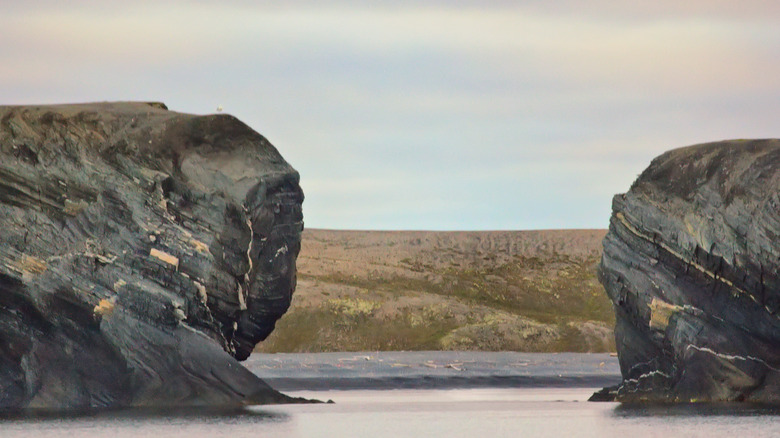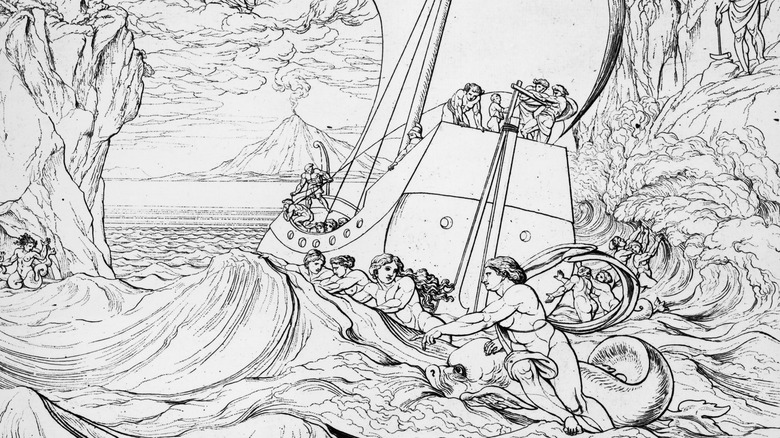The Truth About Greek Mythology's Scylla And Charybdis
The ancient Greek culture created some horrifying monsters, including Scylla and Charybdis. Both of these immortals troubled traveling humans — most notably, Homer's hero, Odysseus, who lost half a dozen crewmen to Scylla on his journey home from the Trojan War, according to the World History Encyclopedia.
This terrifying creature — part female, part animal — with 12 feet and six heads full of sharp teeth atop snakelike necks. Sailors that journeyed too close to her cave were devoured. Stories, such as Ovid's "Metamorphosis" tell of her transformation from human to monster by a jealous Circe. The sea god Glaucus enamored with Scylla's beauty asks Circe, who is in love with the god herself, for a love potion. Instead, she concocts a poison that makes Scylla into a monster. (via Greek Boston). Other tales connect the creature her with another Scylla who chose her love of Crete King Minos over her own father, King Nisus of Megara, according to Britannica. Another story details that Scylla was changed by Poseidon's wife, Amphitrite, who hated the nymph after she captured the god's attention, said Owlcation.
Reality becomes legend
Charybdis sat across from Scylla in a narrow strait, what is now the Strait of Messina, located between Sicily and Italy. This deadly whirlpool, the daughter of earth deity Gaia and the sea god Pontus took many lives with her swirling waters, according to The Hindu. The once-beautiful Charybdis offended Zeus, the king of the Greek gods, by stealing cattle from his son Hercules and allying herself with his brother Poseidon. He transformed her into the vicious whirlpool as punishment.
Odysseus also tangled with this monster. After the shipwreck of his vessel, his raft is caught in her waters. He manages to clamber onto a fig tree until his raft resurfaced from the monster's grasp and he is able to row with his hands from the danger zone (via enotes). Jason and the Argonauts (pictured above) also successfully passed the two monsters on his quest for the Golden Fleece, according to Maritime Professional.
Both Greek myths find their basis in reality; Charybdis, the whirlpool, and Scylla, a deadly rock or reef, offer a poetic explanation of the dangers of early travel in the western Mediterranean, according to Britannica. The phrase "between Scylla and Charybdis," refers to the choice so many sailors of the ancient world faced where options boiled down to two unpleasant selections — what we'd call between a rock and a hard place now.

